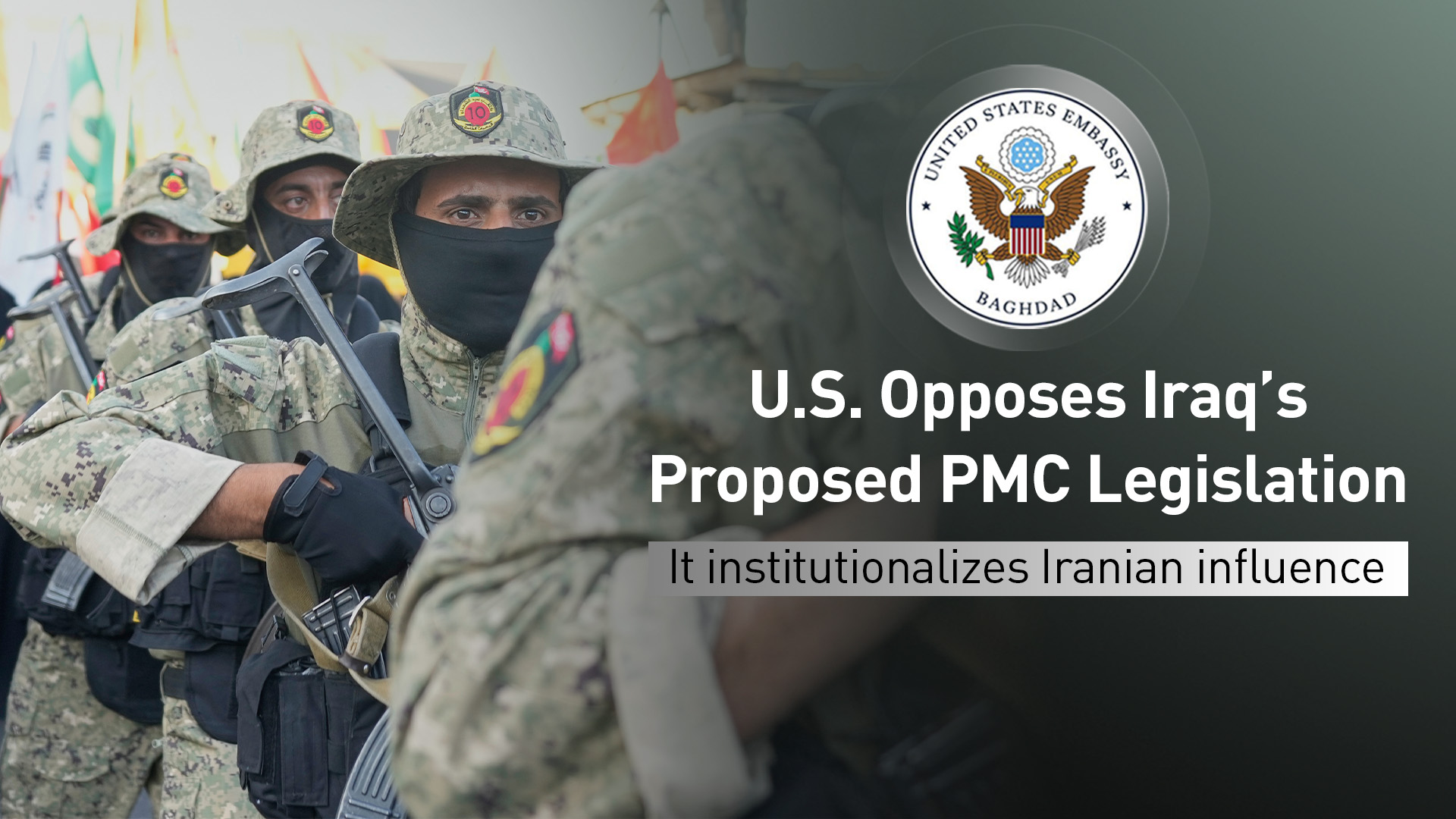US Warns PMF Law Undermines Sovereignty as Vote Stalls
The US has warned that a proposed Iraqi PMF law would undermine sovereignty and entrench Iranian influence. Amid this pressure and internal Shiite divisions, a parliamentary vote on the controversial legislation has been postponed.

ERBIL (Kurdistan24) – The United States government has publicly warned that proposed amendments to Iraq's Popular Mobilization Forces (PMF) law would "institutionalize Iranian influence" and "undermine Iraq’s sovereignty," according to a direct and forceful statement from its embassy in Baghdad. The high-level expression of concern comes as the Iraqi parliament has halted a planned vote on the legislation amid intense US diplomatic pressure and deep internal political fractures.
In a message posted on the social media platform X on Sunday, the U.S. Embassy in Baghdad detailed a recent meeting between American and Iraqi officials. “Chargé d’Affaires Fagin reiterated U.S. concerns with two proposed PMC/PMF bills during his August 2 meeting with First Deputy Speaker Mandalawi," the embassy stated.
The post continued by quoting the top U.S. diplomat on the matter: "As U.S. Secretary of State Marco Rubio stated, PMC legislation would institutionalize Iranian influence and strengthen armed terrorist groups, undermining Iraq’s sovereignty.”
#CDA Fagin reiterated U.S. concerns with two proposed PMC/PMF bills during his August 2 meeting with First Deputy Speaker Mandalawi. As @SecRubio stated, PMC legislation would institutionalize Iranian influence and strengthen armed terrorist groups, undermining Iraq’s…
— U.S. Embassy Baghdad (@USEmbBaghdad) August 3, 2025
This public declaration from Washington aligns with reports that the controversial legislation has been effectively shelved. According to a report by Shafaq News, efforts to pass the new amendments have stalled, with expectations that the law will now be postponed until the next parliamentary term.
The delay is attributed to both the explicit American opposition and unresolved disagreements within Iraq’s own Shiite political bloc regarding the paramilitary force's future role and command structure. A political source, speaking to Shafaq News, explained the core of the internal dispute. "The current draft seeks to formally integrate the PMF into Iraq’s armed forces under a hierarchical military leadership," the source said. "However, influential factions within the PMF oppose this model. Without political consensus, the law is likely to be deferred or negotiated through political trade-offs in the future.”
The American position has been confirmed by Iraqi officials. Shafaq News reported that Parliamentary Speaker Mahmoud al-Mashhadani recently confirmed that the United States has clearly expressed its rejection of the bill in its present form.
Political sources also informed the news agency that Washington is actively applying diplomatic pressure to block the legislation. The U.S. fears the amendments would solidify the PMF’s autonomy from the Iraqi army and, crucially, confer legal legitimacy on factions that the United States has designated as terrorist groups. This concern was echoed in a U.S. State Department statement following a recent phone call between Secretary Rubio and Iraqi Prime Minister Mohammed Shia al-Sudani, in which Washington voiced “serious concern” about the draft law.
The legislative controversy unfolds nearly nine years after the Iraqi parliament first passed the original PMF law in November 2016. That law was enacted in response to the Islamic State’s takeover of Mosul but lacked the structural detail needed to fully define the PMF’s place within Iraq’s security apparatus. The PMF itself was established by government decree in mid-2014, following a fatwa by Grand Ayatollah Ali al-Sistani that urged volunteers to defend Iraq against ISIS, leading thousands of fighters from pre-existing Shiite armed groups to join under its umbrella.
Compounding the political challenges, the current debate over the amendments is taking place as the Iraqi parliament struggles to maintain quorum, with a significant number of lawmakers reportedly skipping recent sessions.
